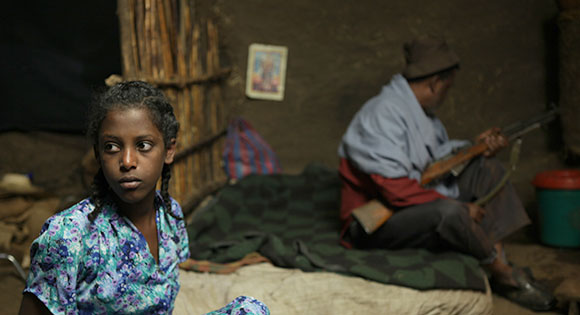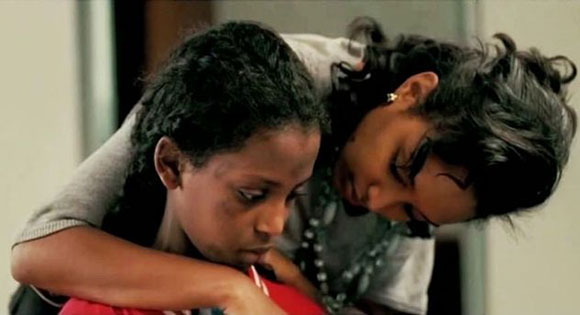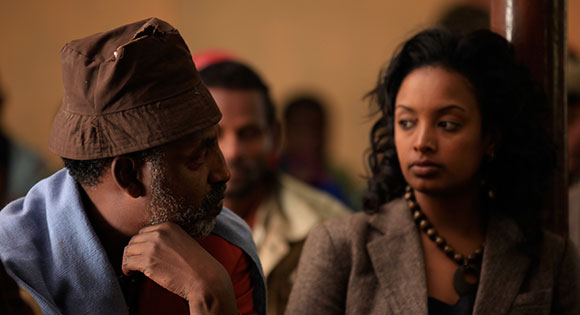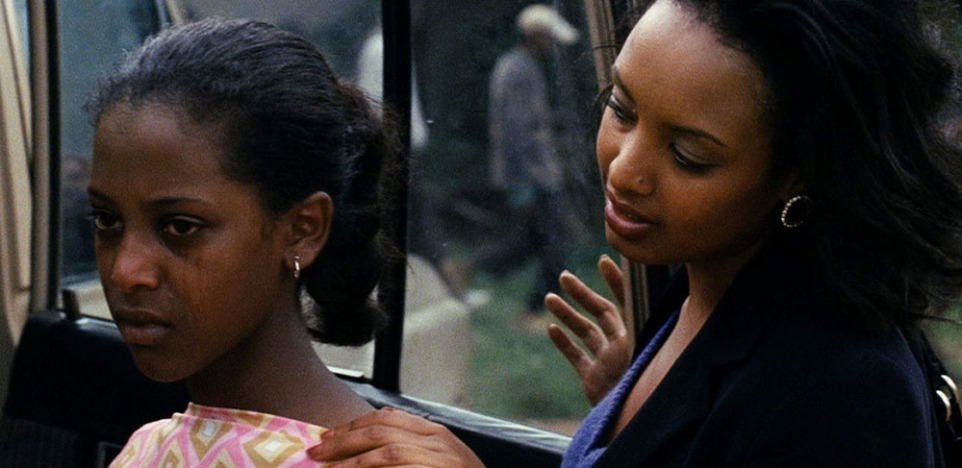In "The Commitment Book" created for the 2015 Parliament of the World's Religions, one statement, "Declaration for the Dignity and Human Rights of Women," begins:
"The struggle for the dignity and equal rights of women is the global human and civil rights struggle of our time. …
"Violence, child marriage, slavery and forced prostitution, rape and sexual assault, brutality and abuse, 'honor killings,' and immolation, bodily and genital mutilation, genocide of girls and selective abortion of female fetuses, and legitimized murder of women are pandemic.
- Throughout the world, one in three women has been raped, beaten, or violently assaulted.
- Seven hundred million women were children when they were married.
- More than one hundred and thirty three million girls and women have experienced some form of female genital mutilation.
- More than twenty thousand women a year are victims of 'honor killing,' usually murdered by their father, uncle or brother."
Difret is an Ethiopian film written and directed by Zeresenay Berhane Mehari. It explores child marriage and violence against women in this African nation. The title has a double meaning in Amharic, the primary language of Ethiopia: in its most common usage, it means courage or "to dare," but it can also refer to rape. Both meanings are relevant to this true story set in 1996.

Hirut (Tizita Hagere) is a 14-year-old schoolgirl whose parents are poor farmers in a rural community. On her way home one day, she is chased by a group of armed men on horseback who abduct her. Locked in a shed, she is raped by a man who tells her "You will soon be my wife." With courage, she retrieves his rifle and tries to escape. She is chased into the woods by the men. Fearing for her life, Hirut shoots the man who raped her. His friends try to kill her but a law official intercedes and she is taken to prison.
Meaza Ashenafi (Meron Getnet) is a formidable woman lawyer who heads an organization that offers free counsel and representation for women in need of help. We see her in action handling the case of a wife who is regularly being beaten by her husband.

Learning of Hirut's arrest, Meaza goes to the police station and then to visit her parents in order to get permission to represent her in court. She is given a hard time by the police chief (Moges Yohannes) and Assistant DA (Brook Sheferaw) who both believe that Hirut is older than 14 and that she will pay with her life for the murder she has committed.
Difret offers keen insights into Meaza's life; she is a confident modern woman from the city who has chosen not to get married and have children, yet this comes with the cost of loneliness. When she is about to depart after visiting Hirut's parents, they are offended when she doesn't accept their invitation to join them for a meal. Hirut's mother says: "You must not forget our culture."
But other traditions practiced in this community are based on the assumption that women do not have equal rights as men. Young girls are often abducted by men who want to marry them. The tribal council meets and decides that no matter what the court of law decides, Hirut must be exiled for what she has done.

Meanwhile, put in the Meaza's custody, the young girl is uneasy about life in the city of Addis Ababa and is spooked by the ringing of a telephone. She is curious about Meaza's life and makes friends at an orphanage where she is staying, but she longs to return home.
In an interview at the Sundance Film Festival where Difret won the World Cinema Audience Award for drama, the writer and director Mehari said: "If there is a villain in my film, it's not a person, it's the tradition… the cycle has to break at some point. What you have to do is educate. I hope this film will go a long way toward changing thinking."
We have purposely left the dramatic outcome of this case out of our review so as not to spoil it for filmgoers. But working what we have covered, we hope that you will take to heart the necessity of doing whatever you can to make your own commitment of conscience to end the subjugation of women and girls around the world.
